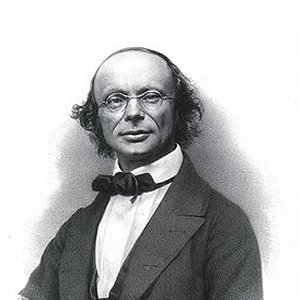
Wilhelm Eduard Weber was a German physicist and, together with Carl Friedrich Gauss, inventor of the first electromagnetic telegraph.

Eduard Friedrich Mörike was a German Lutheran pastor who was also a Romantic poet and writer of novellas and novels. Many of his poems were set to music and became established folk songs, while others were used by composers Hugo Wolf and Ignaz Lachner in their symphonic works.
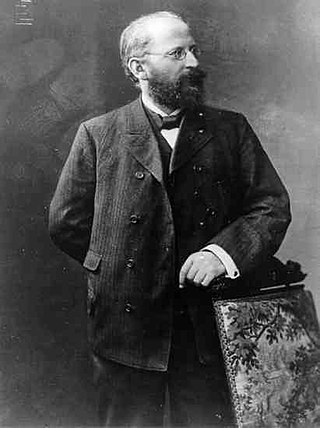
Eduard Bernstein was a German social democratic Marxist theorist and politician. A member of the Social Democratic Party of Germany (SPD), Bernstein had held close association to Karl Marx and Friedrich Engels, but he began to identify what he believed to be errors in Marxist thinking and began to criticize views held by Marxism when he investigated and challenged the Marxist materialist theory of history. He rejected significant parts of Marxist theory that were based upon Hegelian metaphysics and rejected the Hegelian perspective of an immanent economic necessity to socialism.

Eduard Buchner was a German chemist and zymologist, awarded the 1907 Nobel Prize in Chemistry for his work on fermentation.

Wilhelm Peter Eduard Simon Rüppell, also spelled Rueppell was a German naturalist and explorer, best known for his collections and descriptions of plants and animals from Africa and Arabia.

Ray Milton Dolby Hon OBE, HonFREng was an American engineer and inventor of the noise reduction system known as Dolby NR. He helped develop the video tape recorder while at Ampex and was the founder of Dolby Laboratories.

Heinrich Eduard Heine was a German mathematician.
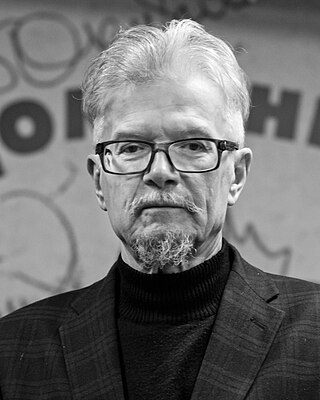
Eduard Veniaminovich Savenko, known by his pen name Eduard Limonov, was a Russian writer, poet, publicist, political dissident and politician.
William Barr is a Scottish historian with a specific interest in the history of exploration of the Arctic, and to a lesser degree, the Antarctic. He holds degrees in Geography from the University of Aberdeen, Scotland and McGill University, Montreal, Canada. From 1968 until 1999 he was a member of the faculty of the Department of Geography, University of Saskatchewan, Saskatoon, Canada and is now a professor emeritus there.
The Digital Government Society or DGS is an international, nonprofit, professional society devoted to advancing democratic digital government via research, policy, and best practice, including original countries, Canada, the United States, and Mexico, and other countries around the world.
Alvin Hovy Moore was an American horse rider who competed in the 1932 Summer Olympics. In 1932 he and his horse Water Pat won the bronze medal as member of the American dressage team in the team dressage competition after finishing seventh in the individual dressage event.
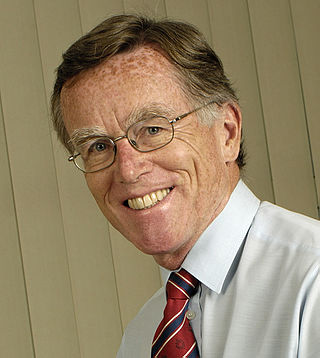
Eduard Jan Bomhoff is a Dutch economist and retired politician who served as Deputy Prime Minister and Minister of Health, Welfare and Sport for the Pim Fortuyn List (LPF) in the Cabinet Balkenende I from 22 July 2002 until 16 October 2002. He is currently an economics professor at the Monash University Malaysia Campus in Kuala Lumpur.

Hubert Simon Markl was a German biologist who also served as president of the Max Planck Society from 1996 to 2002.

Manfred Robert Schroeder was a German physicist, most known for his contributions to acoustics and computer graphics. He wrote three books and published over 150 articles in his field.
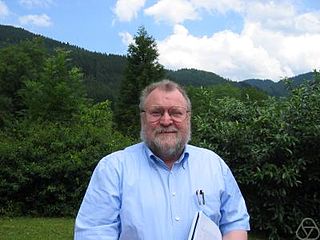
Eduard J. Zehnder is a Swiss mathematician, considered one of the founders of symplectic topology.

Carol-Eduard Novak is a Romanian road and track racing cyclist, who currently rides for UCI Continental team Team Novak.

Eduard Meine van Zinderen Bakker was a Dutch-born South African palynologist who made significant contributions to the fields of plant ecology, palynology and palaeo-ecology of Africa.
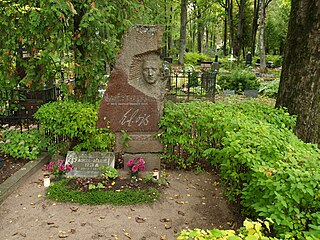
Eduard Oja was an Estonian composer, conductor, music teacher and critic. His father was a forest warden. Between 1919 and 1925 he studied at Tartu Teachers' College at Tartu University, where he met Eduard Tubin, and he also worked for some time as a school teacher. He was not a particularly prolific composer, composing mainly orchestral and ensemble works and choral music. He was however much appreciated during his lifetime, and received awards and acclaim for several of his works. He also worked as a conductor, leading the Tartu Women's Singing Society's Women's Choir between 1930 and 1934, as well as a teacher of music theory at Tartu Higher School of Music. In addition, he was himself a practising violinist. A number of his works such as the opera Oath Redeemed and the choral work The Return Home have been lost, although the majority of his work has survived, and is valued in museums in Estonia today. The Eduard Tubin Museum of Alatskivi Castle contains exhibits related to him and his fellow students under Heino Eller, known as the "Tartu school", such as Eduard Tubin, Alfred Karindi, Olav Roots and Karl Leichter.

Eduard Jacob Neven Looijenga is a Dutch mathematician who works in algebraic geometry and the theory of algebraic groups. He was a professor of mathematics at Utrecht University until his retirement in 2013.















